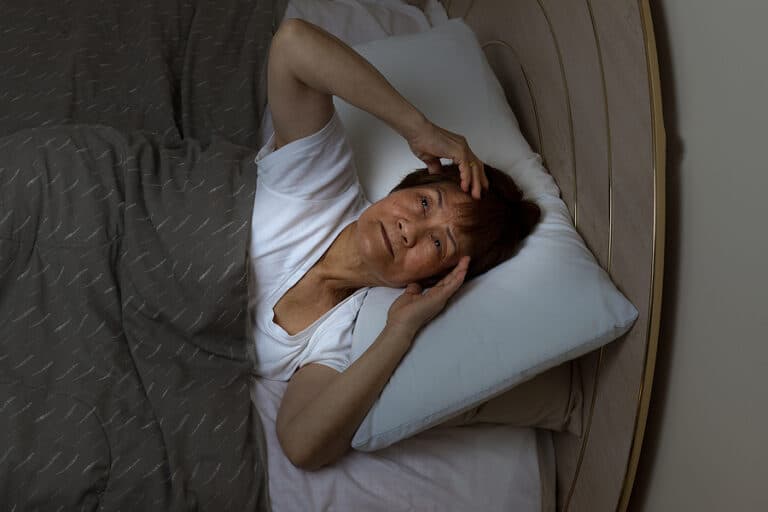Delirium is a sudden change in a person’s ability to recognize and understand the reality around them, making 24-hour home care imperative. It can look different from person to person. For some it might cause anxiety and agitation, for others, they may withdraw from the reality around them, seemingly unable to interact with it at all.
Nighttime delirium isn’t common, but it can happen with the elderly and comes on quickly. Your loved one may wake up in the middle of the night and believe she’s in a completely different place and even during a different time. Nighttime delirium is often called sundowning in dementia patients and is responsible for overnight wanderings that can put your loved one in danger.
Delirium Symptoms
If your loved one suddenly wakes up at night and is not coherent, you or 24-hour home care providers might notice these symptoms as you try to talk to her and get her back into bed.
- She may have delusions and believe things that are not true. She may be sure that her husband who passed away 20 years ago is outside waiting for her and will not be able to understand why he isn’t there.
- She may hallucinate. Some nocturnal delirium events include hallucinations that can seem very real to the person having them.
- She may feel restless and upset but not be able to clearly articulate why.
- She can be paranoid and fear for herself.
- She might have extreme mood swings and switch from compliant one moment to rage the next.
- She might be confused about who you are, where you are, and what day it is.
- What she says may be completely nonsensical.
Keeping Your Loved One Safe When Delirium Strikes
After the first attack of delirium, it’s important to bring your loved one to the doctor to see if a cause can be determined. While delirium is often associated with dementia, if your loved one hasn’t been diagnosed with dementia, it can have other causes, such as low salt or sugar levels, an infection, or a side effect of medication.
Until the cause is determined, it is important to arrange 24-hour home care for your loved one to keep her safe. If you cannot stay with your loved one or she cannot, a 24-hour home care team can be hired to stay with your loved one.
With a 24-hour home care team, someone will always be awake in the home with your loved one, ready to step in when and if she develops another episode of nighttime delirium.
Tips for Helping During a Delirium
The goal is to help your loved one remain calm and return to reality. Your 24-hour home care team will gently and respectfully interact with your loved one to encourage her to get back to bed and rest. Some tactics they may use include:
- Consistent reassurance that she’s okay and safe.
- Using a calming and quiet voice.
- Distracting your loved one from whatever may be causing her to feel unsettled or anxious.
- Redirecting them gently back to the area of the home where they should be or need to go.
- Reorienting them back to reality. This might include pointing out nearby objects to remind them they are still in their home or pointing toward the window to remind them that it’s nighttime.
You might find that even when the delirium symptoms end, you might feel more comfortable with a 24-hour home care team just in case it occurs again.
If you or an aging loved one needs 24-Hour Home Care in Roseville, CA, contact A Better Living Home Care today (916) 514-7006
- Kitchen Tools That Make Eating Easier for Seniors - April 25, 2025
- Helping Seniors Reduce Health Anxiety - April 18, 2025
- Why Should Seniors Consider Adding Soy to Their Diets? - April 7, 2025


